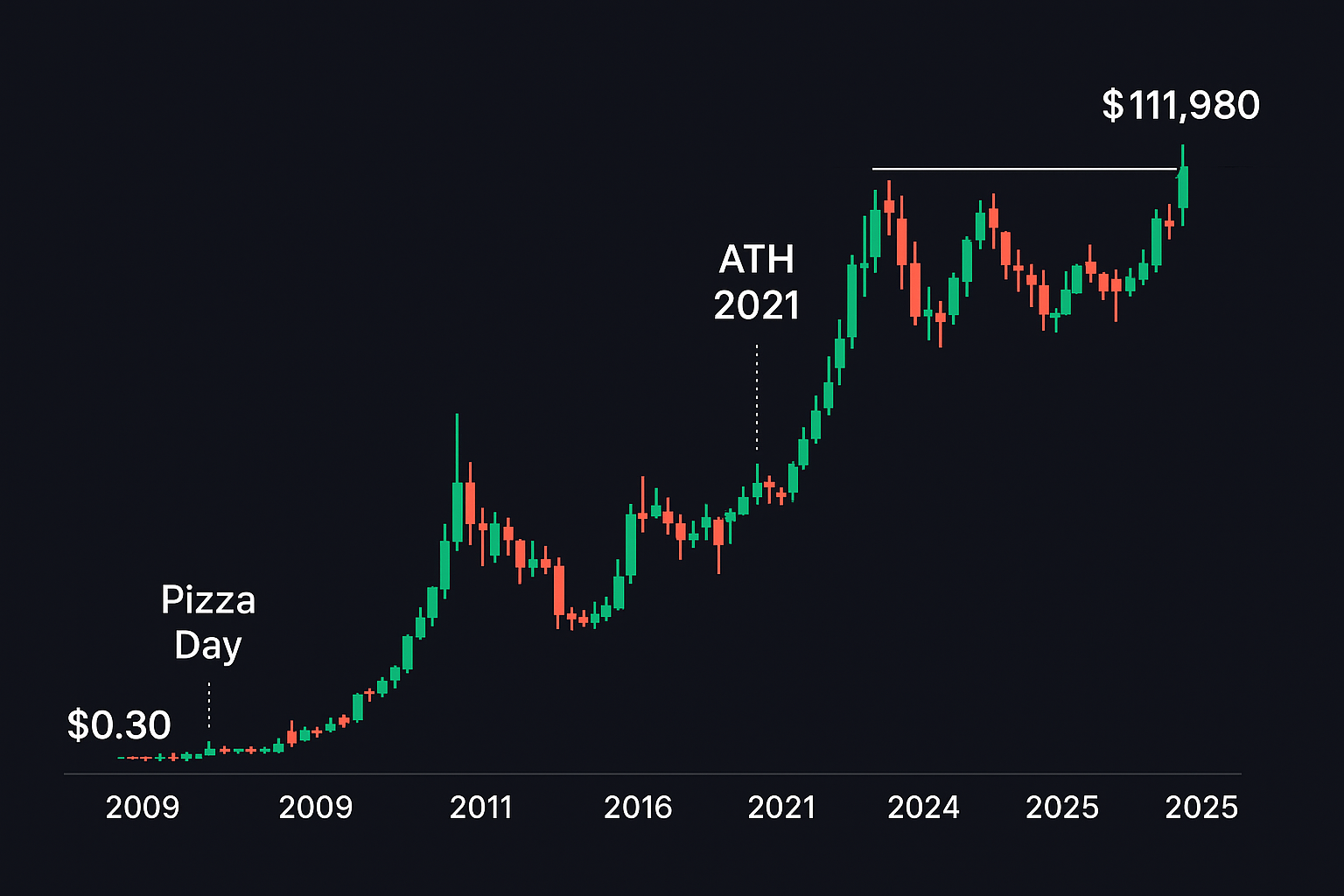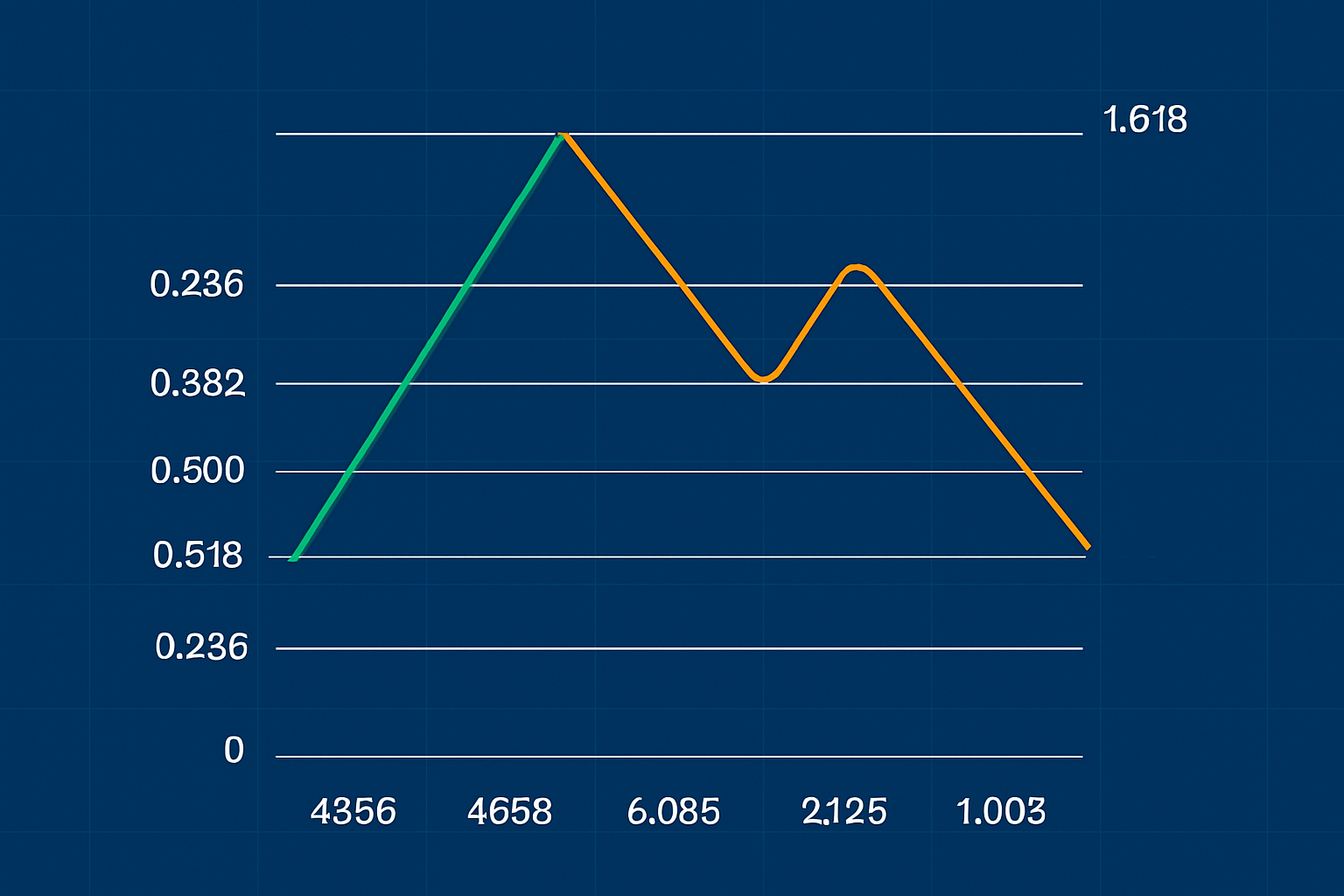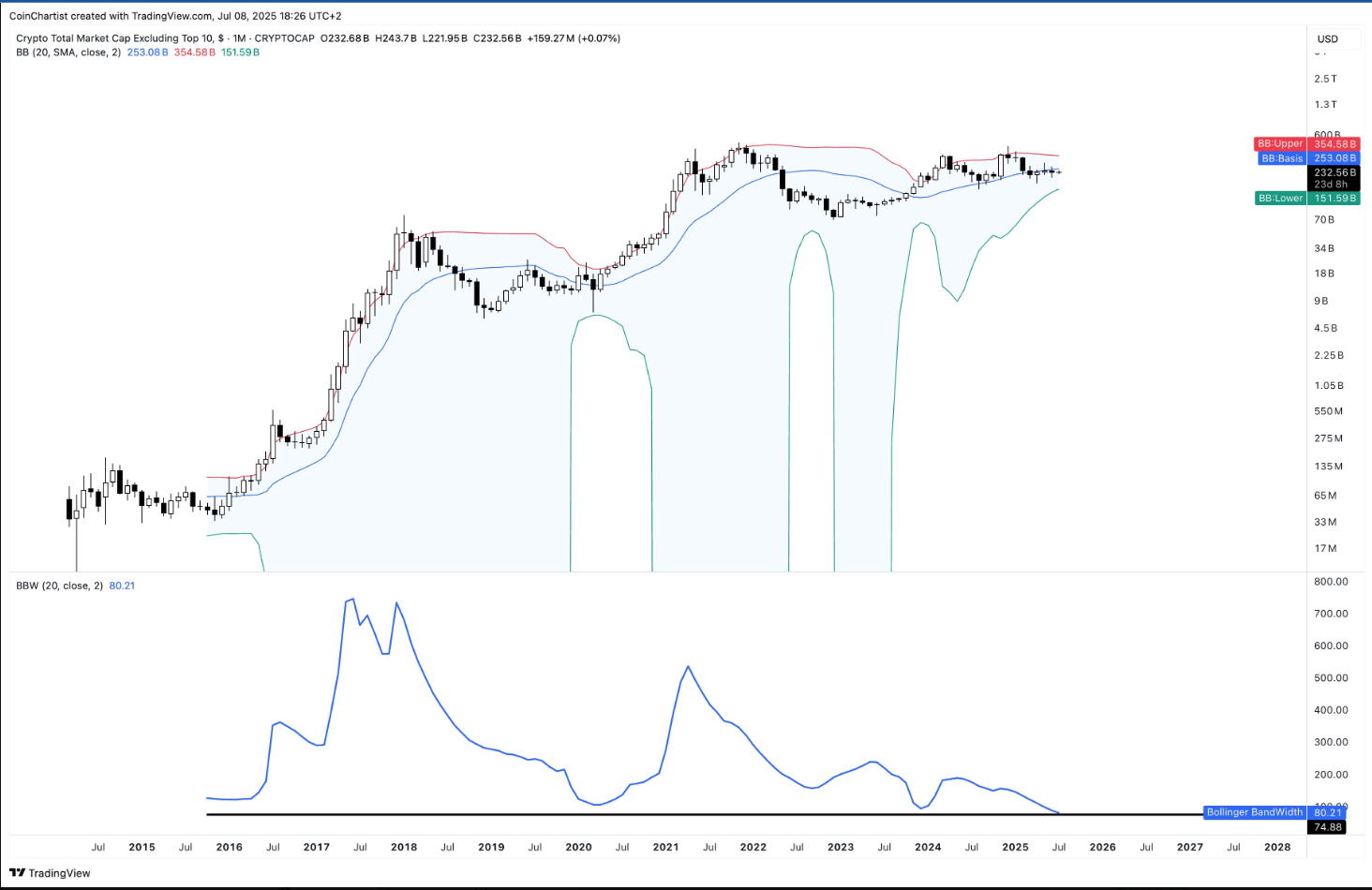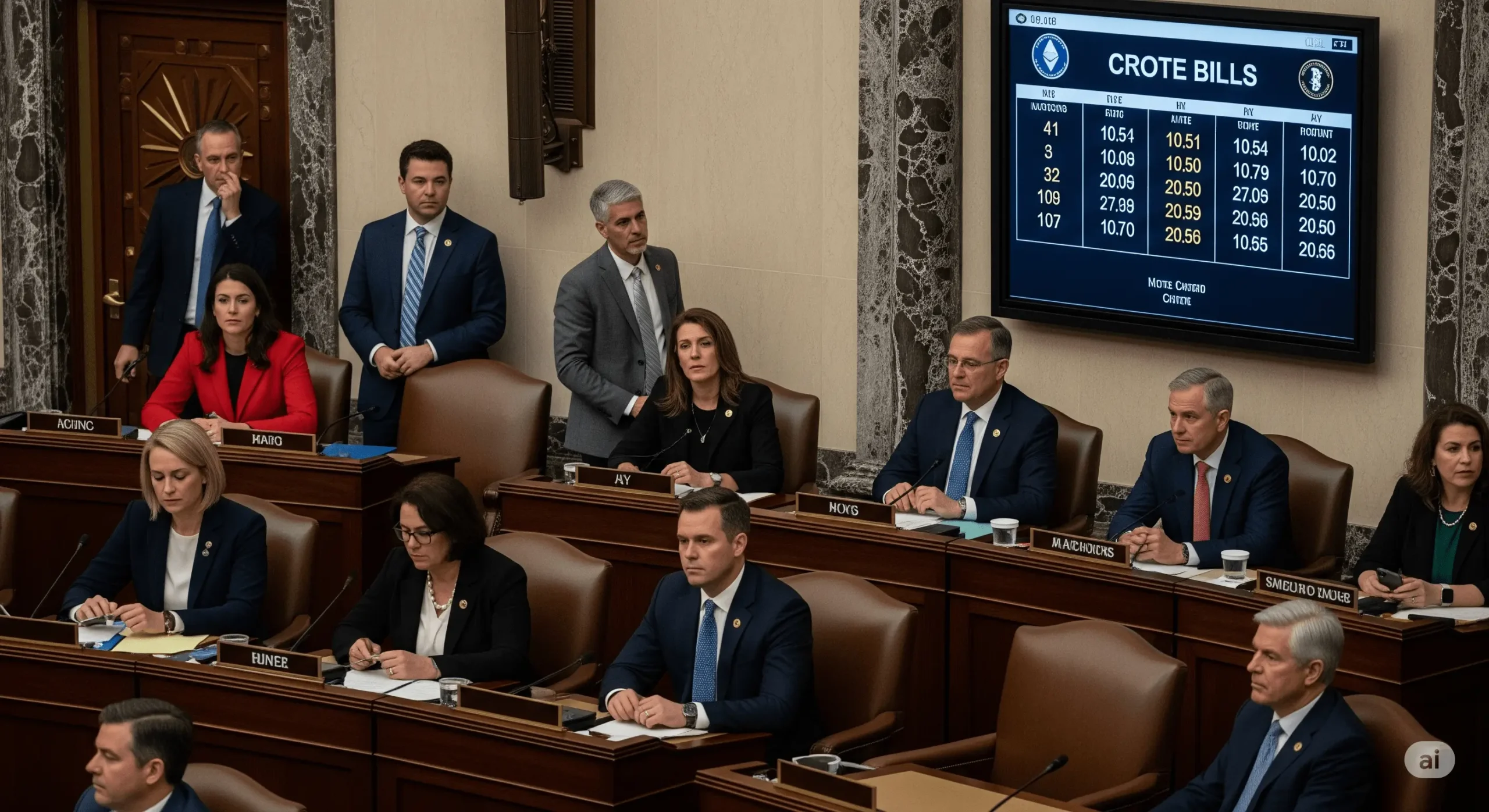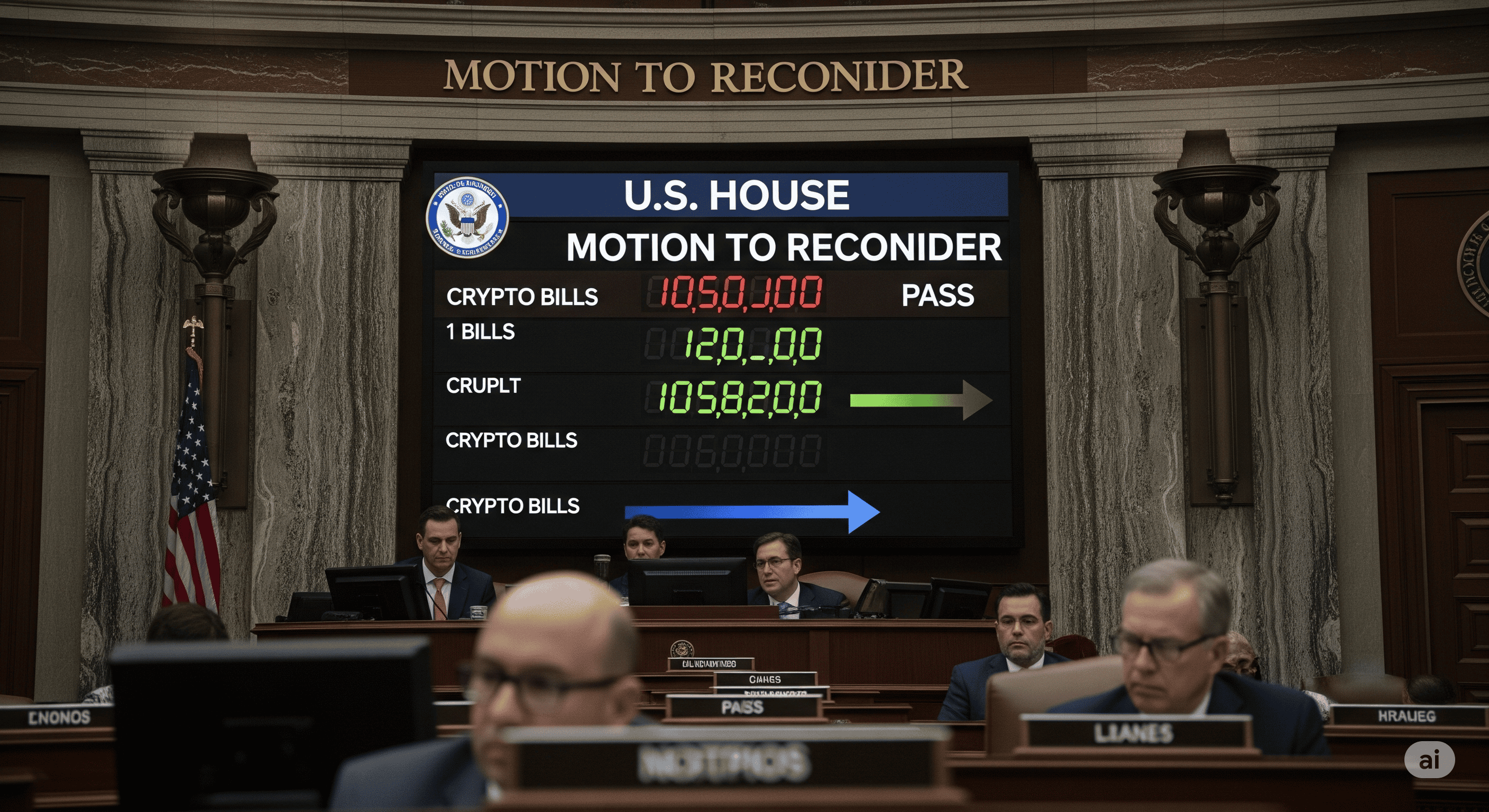Crypto Legislation Stalls in US House
In a recent development on Capitol Hill, key cryptocurrency legislation faced a significant roadblock as 223 members of the U.S. House of Representatives voted against advancing the “Crypto Genius Act,” the “Clarity Act,” and the “Anti-CBDC Act.” The vote, which saw a notable bipartisan alignment of 210 Democrats and 13 Republicans, underscores the complex and often contentious nature of digital asset regulation within the US political landscape.
This outcome suggests that, despite growing interest and adoption of cryptocurrencies, substantial hesitation and disagreement remain among lawmakers regarding how best to integrate and regulate this nascent industry.
The Numbers Behind the Stalled Bills
Voting Breakdown on Crypto Resolutions
| Party | Yea (For Advancing) | Nay (Against Advancing) | Present | Not Voting | Total |
| Republican | 196 | 13 | 2 | 11 | 222 |
| Democratic | 0 | 210 | 1 | 13 | 224 |
| Independent | 0 | 0 | 0 | 0 | 0 |
| Totals | 196 | 223 | 3 | 24 | 446 |
The 223 “Nay” votes were crucial in preventing the advancement of these resolutions, indicating a strong sentiment against their immediate progression.
Understanding the Proposed Crypto Acts
- Crypto Genius Act: This bill focused on fostering innovation in the crypto space, potentially through clearer guidelines for businesses, developer incentives, or definitions for various digital assets.
- Clarity Act: This pertains to establishing regulatory clarity for cryptocurrencies, an area consistently called for by the crypto industry to reduce uncertainty and encourage investment. This could involve defining which digital assets are securities, commodities, or other financial instruments.
- Anti-CBDC Act: This bill would target Central Bank Digital Currencies (CBDCs). Opposition to CBDCs often stems from concerns about privacy, government control over financial transactions, and the potential impact on commercial banking systems.
Why the Opposition?
The bipartisan nature of the opposition (210 Democrats and 13 Republicans) indicates a diverse set of reasons for voting against these bills. Potential factors include:
- Regulatory Concerns: Some lawmakers may believe the proposed bills do not go far enough in protecting consumers or preventing illicit activities. In contrast, others might view them as overly restrictive and stifling innovation.
- Lack of Consensus on Definition: The fundamental disagreement over how to classify and regulate different types of digital assets remains a major hurdle.
- Privacy Concerns (for Anti-CBDC Act): The “Anti-CBDC Act” specifically points to strong concerns among lawmakers about the potential implications of a US-issued CBDC, particularly regarding surveillance and central control over finances.
- Political Timing and Priorities: Legislators may have voted against advancing these bills due to competing legislative priorities or a belief that more comprehensive or different legislation is needed.
- Insufficient Understanding: For some, the complexity of cryptocurrency and blockchain technology may lead to a cautious approach, resulting in votes against advancing legislation they do not fully understand or support.
What This Means for the Future of Crypto in the US
The failure to advance these crypto bills signifies that the path to comprehensive cryptocurrency regulation in the United States remains challenging.
- Continued Regulatory Uncertainty: The industry will likely continue to operate under a patchwork of existing laws and regulatory interpretations, leading to ongoing ambiguity for businesses and investors.
- Bipartisan Disagreement: The vote highlights that there isn’t a unified approach to crypto regulation even within parties, let alone across the aisle. This makes future legislative efforts more difficult.
- Focus on Specific Issues: Future legislative efforts may be more piecemeal, focusing on specific aspects of crypto (e.g., stablecoins, DeFi, or NFTs) rather than comprehensive frameworks.
- Increased Scrutiny for CBDCs: The strong “Nay” vote on the “Anti-CBDC Act” suggests that any move towards a US CBDC will face significant political hurdles and opposition.
Final Thoughts: A Long Road Ahead for Crypto Legislation
The recent vote in the House is a clear indication that achieving consensus on cryptocurrency regulation in the US is a marathon, not a sprint. While the crypto industry continues to innovate rapidly, the legislative process moves at a slower, more deliberate pace, often fraught with political divisions and differing ideological perspectives. The outcome of this vote underscores the need for continued dialogue, education, and potentially more targeted legislative proposals to navigate the complex future of digital assets in the United States.
Key Takeaways:
- Significant Opposition: 223 US lawmakers (210 Democrats, 13 Republicans) voted against advancing the “Crypto Genius Act,” “Clarity Act,” and “Anti-CBDC Act.”
- Bipartisan Nature: The opposition was notably bipartisan, indicating broad disagreements on crypto regulation.
- Regulatory Uncertainty Continues: The vote suggests that clear and comprehensive crypto legislation in the US is still some way off.
- Strong Anti-CBDC Sentiment: The “Anti-CBDC Act” being blocked highlights significant opposition to the concept of a US Central Bank Digital Currency among lawmakers.
- Complex Landscape: The outcome reflects the complex and often contentious nature of digital asset regulation in the US.



